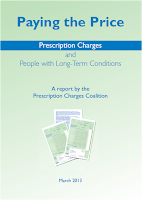A few years ago I was fortunate enough to spend 2 weeks in Kenya working on an intensive programme for nurses who wanted to top up their qualifications to Degree level in order to start on a Master’s programme at the University of Dundee. It was an extremely interesting and sometimes challenging experience. The usual classroom props, power point projectors, electronic white boards, books and so on were completely absent. The closest there was to anything more modern than a flip chart was a battered overhead projector used to show acetate slides to the students.
The electricity would often go off, and stay off for hours at a time. Time tables were extremely flexible with classes running all morning or just for an hour. The students, who came from all over Kenya, stayed in a hostel and worked from 08.00 through until 18.00, with a short lunch break in-between. They were hugely competitive and loved group work and presenting their ideas. Many students would work late into the night and greet you the next morning with long lists of questions. I very much enjoyed the experience and often recall the trip as it occurred around this time of the year as I celebrated my birthday while out there. Well the students helped celebrate – they organised a cake, and at the end of the day we had an impromptu tea and cake birthday party.
I also recall the trip because while I was there I was able to visit the Mathari National Hospital. The Mathari Hospital was established in 1904 as a small pox isolation centre but then became a mental health unit called The Lunatic Asylum. In 1924 it was renamed Mathari Mental Hospital. In 1978 a Maximum Security Unit was opened, and it was this that I wanted to see as my recent experience in clinical practice had been at a large Forensic Unit for Adolescents which included a secure unit. What I saw at the Mathari unit was humbling. As a mental health nurse what I witnessed challenged my understanding of mental health care. The memories have stayed with me ever since.
People had been admitted there and had been patients for years, often forgotten by friends and families. Male and female adults were cared for in the same ward as children, and there was a complete lack of ‘designed in’ security, but plenty of bars on the windows and locks on the doors. Patients were locked into dormitories at night, often in very over crowded rooms. Many showed signs of being sedated. In 2011 CNN ran a documentary on the conditions that was hard hitting and emotionally challenging. These days, although the erratic electricity supply continues to make life difficult, there have been significant improvements in the care and conditions provided.
Yesterday, all of these memories came flooding back when I read the dreadful story of the fire last Thursday night at the Psychiatric Hospital No 14, Ramenskiy, Russia. 38 people, aged 20 -76 years old died in the blaze; 36 were patients, sleeping behind barred windows and were heavily sedated. The fire was believed to have been started by a patient who ignored the smoking ban. There have been many fires at Russia’s state health care institutions in recent years, all with heavy loss of life. In 2006, a fire at a Moscow drug rehabilitation centre killed 45 women, 63 older people died at a nursing home in Krasnodar in 2007, and in 2009, 23 people died at another nursing home in Komi. The sad news from Ramenskiy certainly puts lasts weeks somewhat at times arcane RCN congress discussions into perspective.














